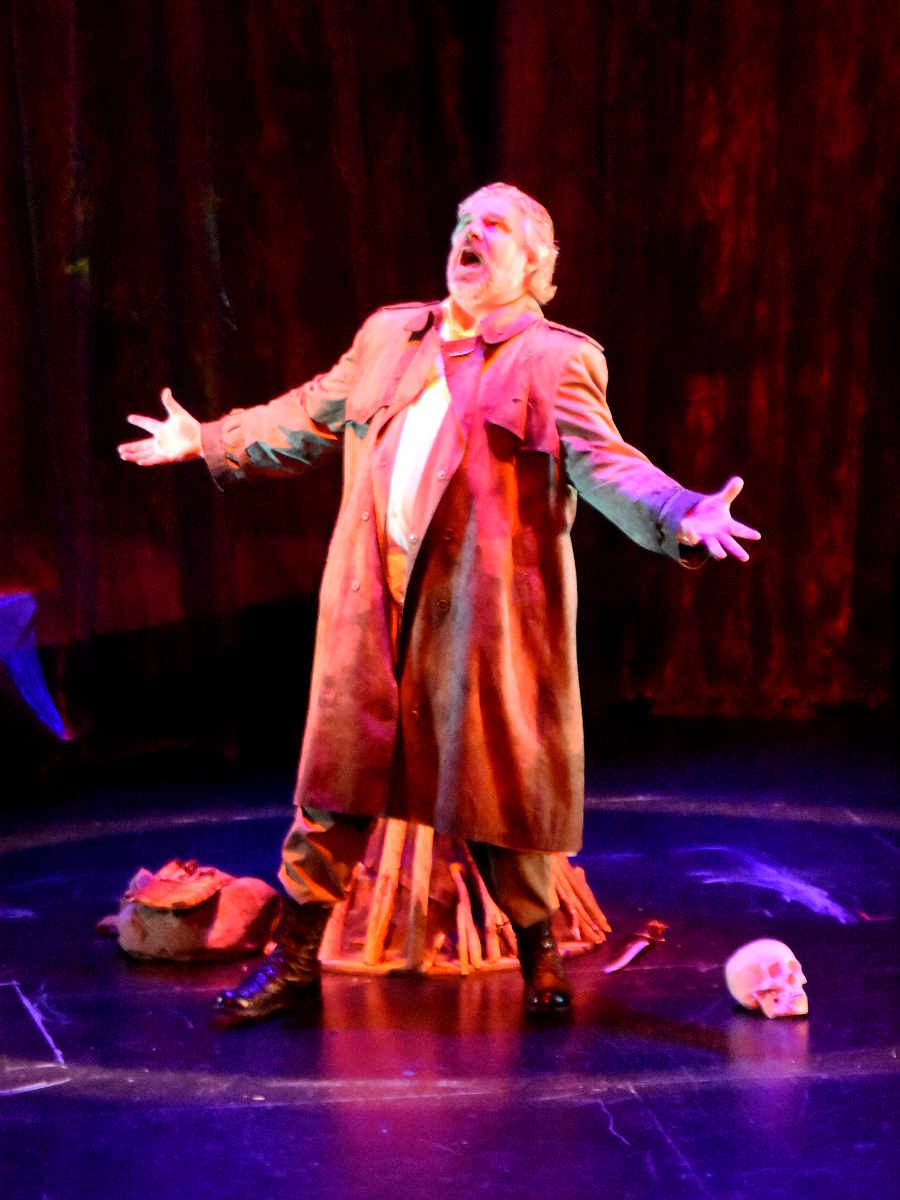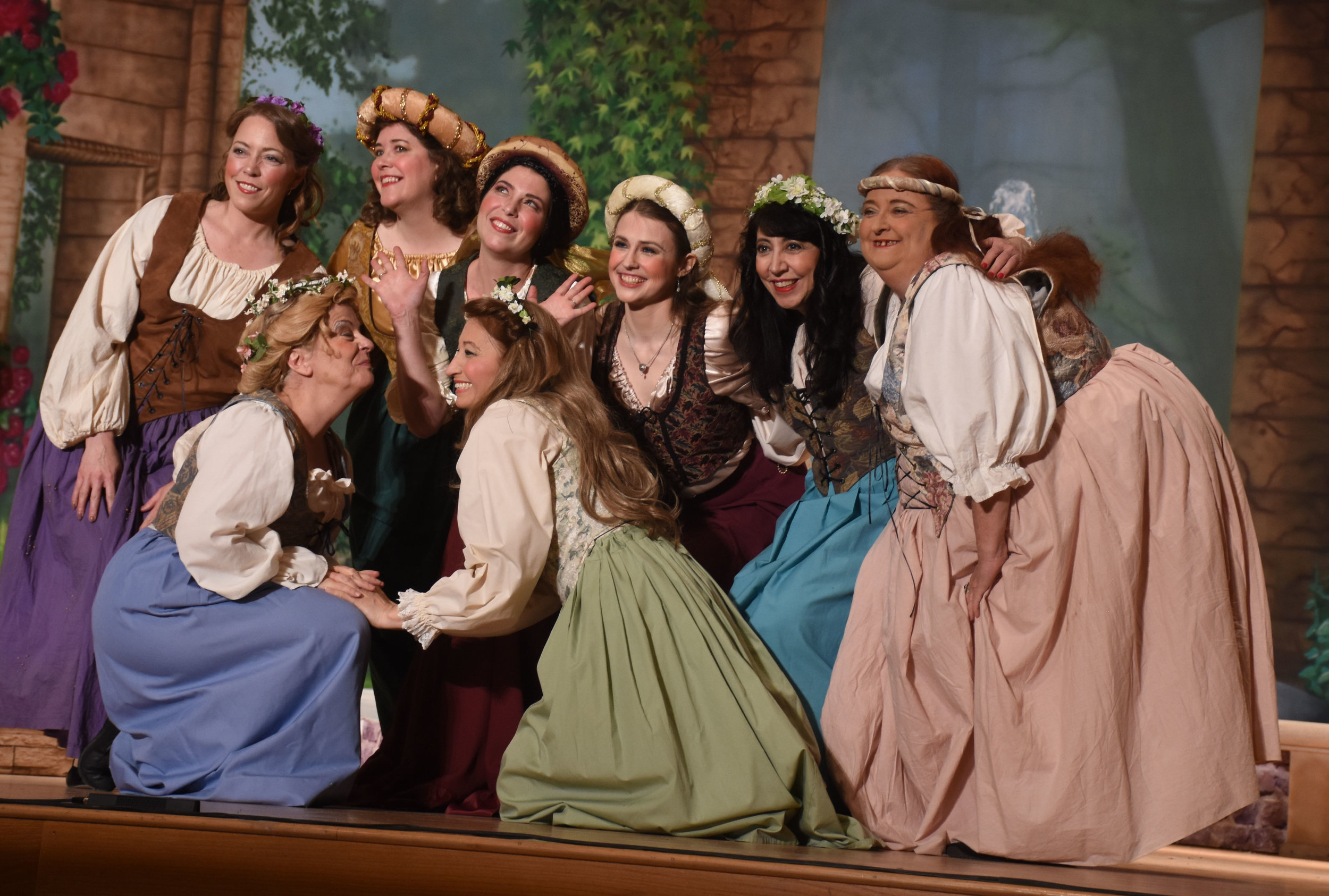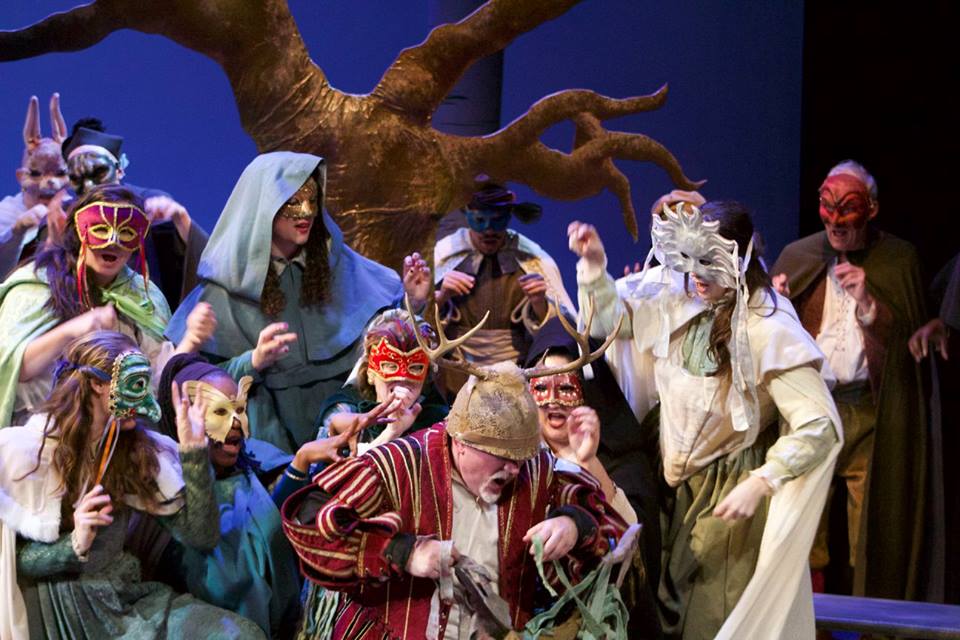Weber’s Der Freischütz at the Bronx Opera this weekend
Carl Maria von Weber’s Der Freischütz is a member of the category “once immensely popular operas which, sadly, are infrequently performed today.”* The Bronx Opera’s decision to mount it this season, therefore, is most welcome, a decision, you should know, they’ve made three times before (1971, 1986, and 2001).
Unlike the more popular really big operas by Richard Wagner or Richard Strauss, the musical demands on the singers and the orchestra for Der Freischütz are certainly not overwhelming, even for a smaller company. In spite of the spooks, Freischütz borders on the German-lite repertory of operas by Marschner, Nicolai, Lortzing, von Flotow, and others, even Robert Schumann.** No, the biggest hurdle with Der Freischütz has always been scenic, specifically the famous Wolf Glen Scene, (Act II, Scene II). All manner of evil things from demons, a black boar, dark huntsmen, fire and brimstone, bad weather, fake news, etc. accompany the casting of the seven magic bullets in the presence of the Samiel. If a company can come out of the Wolf Glen alive, the rest of the production probably works too.
Weber's score for Act II with Die Jägersbraut, original title of Der Freischütz, crossed out
Director Ben Spierman’s solution to the challenge is ingenious: the time of the opera is updated to 1918, the end of the Great War.*** As Kaspar and Max cast the magic bullets, Samiel (with the help of Max Bowman, Bronx Opera’s Video Designer) conjures images of the horrors to come in the next 100 years following the “war to end all wars,” from riots, lynchings, protesters met by dogs, bloody executions, the Holocaust, atomic warfare, and beheadings on video, the fare of the our daily news and the countless documentaries aired today. Very affecting all these reminders, as they should be. But they go by quickly: I’m certain I’ve omitted some and I may have listed here others I assumed should be on the list but actually were not in the Glen this past Sunday. Otherwise, on either side of this scene, the production is acceptably serviceable; all set changes mid-act were swiftly done.
All things horrible are conjured as the magic bullets are cast
As is their wont, the Bronx Opera assembles two complete casts for each opera production, alternating Saturday evenings with the Sunday afternoons of the two weekends. The Sunday matinee cast reviewed here is scheduled again for this Saturday evening (5/12).
Daniel Foltz-Morrison is a wiry, fit Max with a strong lyric tenor voice. He’s an assistant forester and, yes, a bit cross because he’s losing the marksman’s contest, which should have been a slam dunk for him, but it’s not, so he’s desperate, desperate because deep down he loves and cares for Agathe and if he doesn’t win tomorrow the wedding is off. Also, by their marriage, she is his ticket to at some day assume the honorable position of Chief Forester. High stakes, in other words. His foil is Kaspar, a comrade from the trenches of war, but now also an assistant forester. Kaspar is desperate too: he’s sold his soul to the devil Samiel and now, understandably, wishes to buy himself some time before closure on his dreadfully painful eternal damnation by sacrificing Max in his place. Michael Nansel fills the theater with a dark, sinister bass, more sinister in song than in dialog.
MIchael Nansel sings Kaspar
Kuno, the Chief Forester and Agatha’s father, is handsomely performed by Brian J. Alvarado; Kilian, a Bauer, is enough of a wiseass to get under Max’s skin; Ottokar, the hereditary ‘ruler’ (though of what, after WWI, is not clear) was nobly delivered by Markel Reed.
The large vagrant on stage toward the end of the overture is actually A Hermit who reappears just in the nick of time to avert the catastrophe in the final scene: Max’s last bullet, under the spell of Samiel, is set to veer off target and kill the pure Agathe as she approaches in her gown with her bridesmaids! But instead the bullet kills Kaspar. Samiel is defeated. Jay Gould is a sonorous Hermit.
Agathe is touchingly sung by Jessica Tivens Schneiderman. She suffers from angst and despair throughout much of the opera, but not for no reason. Strange things happen, she has strange dreams, and Max is acting strangely, with good reason, of course, there's a lot riding on tomorrow’s contest. She is perked up by Ännchen, her cousin, delightfully portrayed by Alesssandra Altieri. The scenes between the two are heart felt and touching. Meaghan Sands and Anglea Musliner are the two Bridesmaids in all performances.
Ben Spierman’s Director’s Note makes clear his intentions to put in better relief the opera’s message, which, he feels, is society’s ability (or inability) to change when the cost of adhering to conservative tradition is found to be greater than the cost of change, achieved through forgiveness, compromise, and working together. The clash between tradition and change is more apparent in the dialogue, not in the lyrics. Had the Bronx Opera performed Freischütz in the original German and not, as they do here, in English, the larger point probably would have escaped us. Interesting gain for one who’s known the music of Der Freischütz and its libretto in German since way back when. Thoughtfully done!
Michael Spierman, the company’s co-founder, conducted this Sunday and will conduct the two performances to come. In an approach that never rushes, Spierman’s knowledgeable grasp of Weber’s music is evident at every turn. The orchestra responded well and the chorus was robust and sonorous. How wonderful to hear this score live again!
Meganne George’s sets are, as I say, serviceable: they move easily, they demark different areas of the stage, indoors and outdoors, and the color schemes are consistent with the domains they represent.
I keep saying, “you never know when you’ll get a chance to see this opera again.” If you follow the Bronx Opera from now on, it may come around in another season. It’s coming around this weekend, in fact. Enjoy Der Freischütz. Its neglect is unjust.
Review performance: May 6, 2018.
Weber's score facsimile is in a volume in my library, Danke, Hans und Sandy! Other photos to come are provided by the Bronx Opera.
The Bronx Opera’s production of Der Freischütz will be performed at the Lovinger Theatre on Saturday evening, May 12 at 7:30 p.m. and on Sunday afternoon, May 13 at 2:30; tickets are available through the Bronx Opera’s website, which is: www.bronxopera.org, or at the ticket desk in the theatre. The Lovinger Theatre is at Lehman College in the Bronx.
Support your local opera!! Der Freischütz is an experience worthy of your time.
* Der Freischütz premiered in Berlin in 1821 with Weber himself conducting. Its popularity quickly spread through Germany and Austria, even admired in Paris by Berlioz; Freischütz arrived in New York in 1825, sung in English; the Metropolitan Opera premiered Der Freischütz in its second season, November, 1884; the most recent production at the Met was in the fall of 1971 with Pilar Lorengar, Edith Mathis, Srándor Kónya, and Gerd Feldhoff, Leopold Ludwig conducting, making a total of 26 performances in 7 seasons. The Met's Wolf Glen Scene in '71 was mostly a dark stage with flashing lights, as I recall.
** But then again, the operas from this repertory are also neglected anywhere other than Germany or Austria. A shame, actually, they’re quite respectable. Check out Lortzing's Der Wildschütz.
***An early conception of the plot set the tale in the present, which then were the years around 1813: the Battle of the Nations at Leipzig was a blood bath. Napoleon’s broken troops, retreating from their notorious defeat in Russia, were met by an alliance of German forces. The outbreak of cholera which followed felled the father the infant Richard Wagner. This battle too close to home, censors forced resetting the story back to Bohemia in the mid 17th century after the Thirty Year’s War.
Enjoy!


























